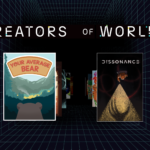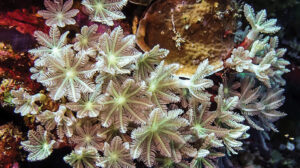For 25 years, drug hunters have been searching for the source of a natural chemical that in initial studies had shown promise for treating cancer. Now, researchers at University of Utah Health report that easy-to-find soft corals—flexible corals that resemble underwater plants—make the elusive compound.
Identifying the source allowed the researchers to go a step further and find the animal’s DNA code for synthesizing the chemical. By following those instructions, they were able to carry out the first steps of re-creating the soft coral’s chemical in the laboratory. The advance could one day result in a new tool to fight cancer.
“This is the first time we have been able to do this with any drug lead on Earth,” says Eric Schmidt, professor of medicinal chemistry. He led the study with Paul Scesa, postdoctoral scientist and first author, and Zhenjian Lin, assistant research professor.
Soft corals have thousands of drug-like compounds that could work as antibiotics, anti-inflammatory agents, and more. But getting enough of these compounds has been a major barrier to developing them into drugs for clinical use. These other compounds could also now be accessible using this new approach.
Unlike animals that inject venomous chemicals into prey, corals use their chemicals to ward off predators that try to eat them. Similarly, drugs derived from these types of compounds could be ingested as pills, rather than given by injection.




Comments
Comments are moderated, so there may be a slight delay. Those that are off-topic or deemed inappropriate may not be posted. Your email address will not be published. Required fields are marked with an asterisk (*).